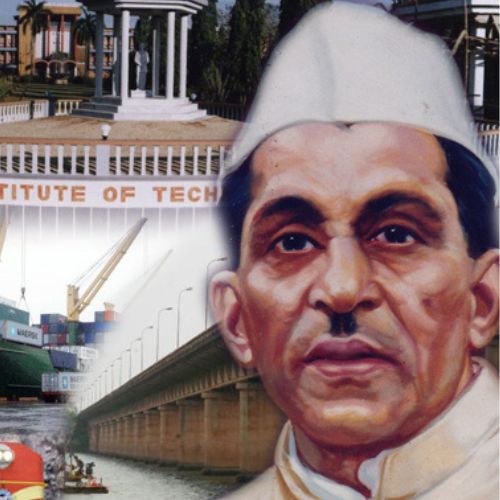Early Life:
Ullal Srinivasa Malliah was born on 21 November 1902 in Mangalore. He studied at St. Aloysius Primary School and the Canara High School. He then earned a degree at the Government College, Mangalore later renamed University College, Mangalore.
18-year-old Mallaiah was part of a 1000 strong crowd that had gathered at Mangalore’s Central Maidan to hear M.K. Gandhi speak. This historical visit to Mangalore was part of Gandhi’s ‘Khilafat Tour’ that covered the Madras Presidency. Inspired by Gandhi’s speech, Malliah joined the freedom movement brushing aside an attractive opportunity to work for his thriving family business.
Role in India’s Independence Movement:
In the 1920s and 1930s, Mallaiah consistently volunteered at the Indian National Congress and participated in the Salt Satyagraha and Quit India movements. He was arrested on multiple occasions and often went underground to evade arrest. The Congress Party’s top brass took notice.
Malliah quickly rose to become within the Congress Party at the State and National levels. In 1936, he became a member of the All-India Congress Committee. A year later he became the President of the Dakshina Kannada District Congress Committee and eventually became the General Secretary and Vice President of the Karnataka Pradesh Congress Committee. Malliah enjoyed a close relationship with many senior Congress Party members like Jawaharlal Nehru and Kamaladevi Chattopadhyaya.
Contribution to Constitution Making:
Malliah was elected to the Constituent Assembly from the Madras province on a Congress party ticket. He was not an active participant in the Constituent Assembly proceedings.
Later Contributions:
Prior to the first Indian general election, Congress President Nehru appointed Malliah alongside Lal Bahadur Shastri as the General Secretary of AICC. Both were instrumental in the Congress’s dominant electoral victory.
Malliah entered India’s first Lok Sabha from the South Canara constituency. He won the next two general elections from Udupi. While in Parliament, he headed the Lok Sabha’s House Committee and remained a member of the All India Handicrafts Commission from 1952.
He is often celebrated in the Udupi-Mangalore region as a true people’s representative and remains one of the longest serving Parliamentarians from this region. Some of his lasting contributions include the setting up of the Karnataka Regional Engineering College in Surathkal (now named National Institute of Technology Karnataka), the New Mangalore Port and the Mangalore International Airport.
Malliah also established the Mangalore Town Hall, a Mangalore Station of All India Radio and facilitated important railway lines, national highways and bridges. All these contributions earned him the moniker, “Father of Modern Dakshina Kannada District”.
He was well-travelled and enjoyed hobbies ranging from a game of chess to swimming and handicrafts.
Malliah passed away on 19 December 1965 in New Delhi. The Mangaluru division of the Department of Posts released a special postal cover on 27 January 2018 to commemorate his life. Malliah’s statues can be seen installed across the city of Mangaluru, including one at the Town hall and the Mangalore Port.

